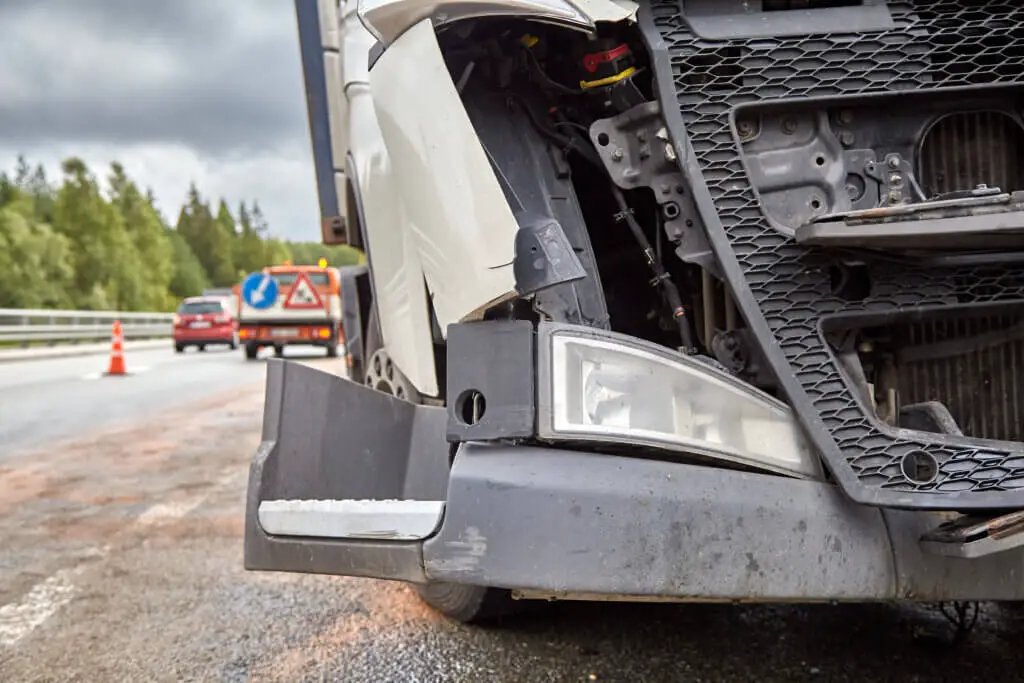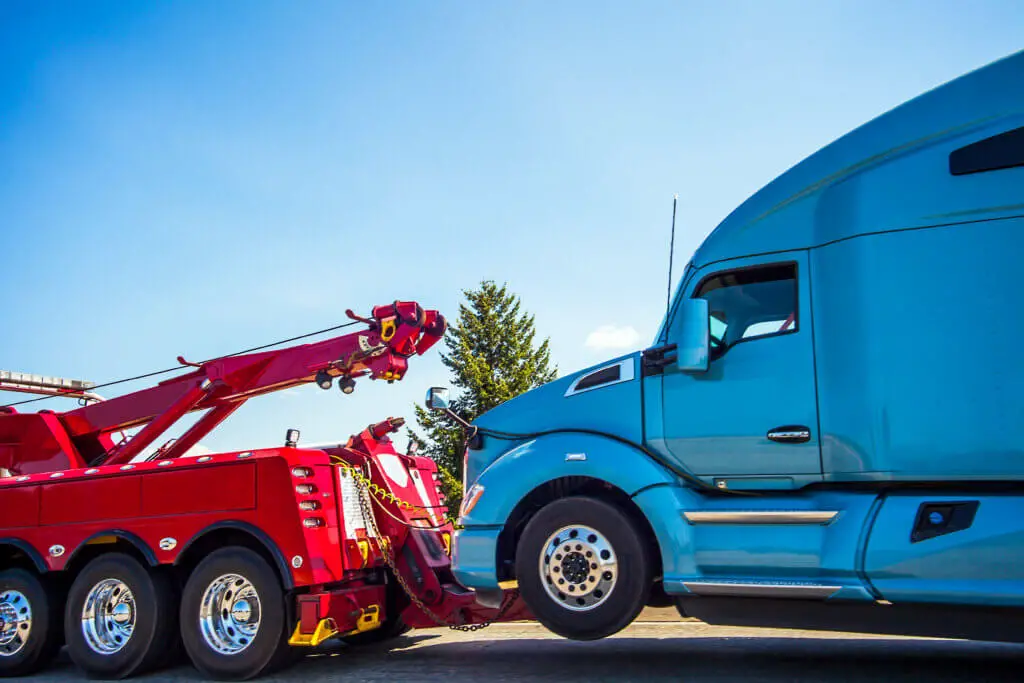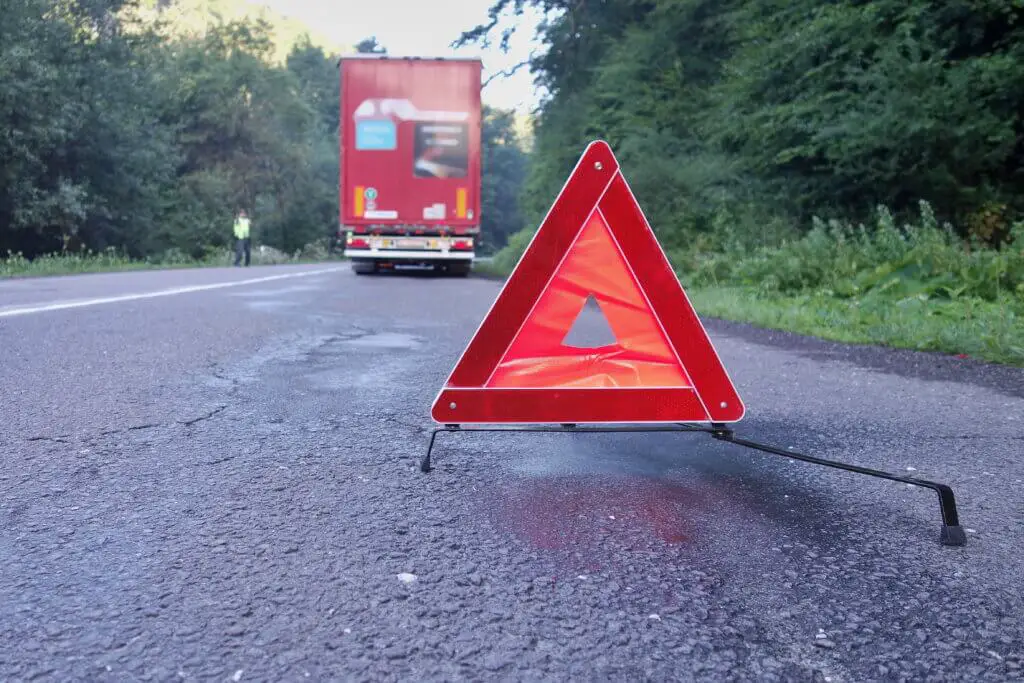Truck drivers find themselves involved in road accidents or something close occasionally. Elementary individual human errors sometimes cause accidents. In other instances, these accidents are caused by complex play-outs of several other factors.
Small passenger vehicles are usually the most impacted when damages occur, although the truck may also suffer some degree of impact. However, occupants of the smaller vehicles tend to seek redress, understandably, as lives may have been lost in the process. Who is then responsible for damages caused in an accident?
The truck driver may be liable for the accident if it is established that they are solely at fault. The trucking company may also be liable if it fails to meet standard safety requirements. Other motorists involved in the crash may also be responsible, making it difficult for them to get total compensation after that.
When is the Truck Driver Liable?

There are two significant instances where the driver may be directly held liable.
- On the one hand, the driver’s negligence or flagrant disobedience to traffic laws could cause them to be held responsible. They may also be held accountable for the damages when they are involved in an accident while running personal errands. Drunkenness or road rage could be an albatross for truck drivers too. Tracing an accident event’s fault directly to the driver will likely get them to pay for damages.
- On the other hand, a truck driver who is an owner-operator may also be held responsible for damages. Owner-operators are the owners of the trucks they drive. They deliver goods for companies on a contract basis. They are usually required to have liability insurance, in which the insurance company is charged for the damage.
When is the Trucking Company Responsible?

Truck drivers are not always solely responsible for damages. Trucking companies may be found complicit in the process that led to an accident. Some of these culpabilities on the part of the trucking company are as follows.
- Hiring unqualified drivers
Whether the trucking company exhibits negligence in the hiring process or fails to train them properly after hiring, they will be liable for any road mishap caused by the driver. The trucking company is responsible for adequately evaluating a driver’s driving records and experience before hiring them.
Trucking companies are required to look out for a history of traffic-law violations, drug and alcohol abuse, and other factors that could constitute a deterrence to road safety amongst their employees before hiring them. They are also mandated to constantly retrain and give road safety orientation to their employees.
- Lack of proper truck maintenance
When a company fails to properly maintain its fleet of trucks, it could be held directly liable for any damage incurred in the event of a crash. Trucking companies and their fleet managers must properly and regularly inspect and maintain their trucks as stipulated by the Federal Motor Carrier Safety Administration (FMCSA) regulations.
In an attempt to cut costs, some trucking companies may compromise on using quality parts to fix damaged trucks. It is crucial that when a truck driver reports any issues on a truck that could potentially lead to a road mishap, the company acts promptly to address the problems before putting the truck back on the road.
It is also pertinent to routinely check and change the engine oil and filters. Other fluid levels should also be checked and adjusted where necessary. The truck’s electrical, lighting, and braking systems should always be perfectly functional. All indicators should always be effective. The trucking company must ensure the driver inspects all tires regularly to ensure they are always fit for the road. Triangular reflectors should always be available in the event of a roadside breakdown of a truck.
- Loading deficiencies of trucks.
A poorly loaded truck on a highway is a good recipe for a major disaster. Much attention should be paid to loading trucks before putting them on the road. Overloading a truck could cause a driver to achieve a different result when they attempt to control the truck. This act can lead to an accident where the company will be responsible for damages.
Improper loading of trucks is equally as bad as overloading. Cargo loaders should evenly spread the weight of goods in the truck to prevent the vehicle from veering off the road or tipping over. A low center of gravity should be maintained when loading every truck to keep them stable on the road. Any infraction in abiding by these safety measures when loading a vehicle could lead to a company paying for damages when accidents occur.
In addition, regulatory safety provisions of the FMCSA for the loading and unloading of trucks should be strictly adhered to. Dangerous and explosive goods should also be well packaged and carefully observed while loading them on a truck and throughout the journey. This will help prevent the escalation of damages caused when an accident occurs.
When the Truck Manufacturer is Complicit.
It is observed that a good number of times, the manufacturers of the trucks are responsible for road accidents. Defects in parts of the trucks from the point of manufacture could lead to road accidents if not detected early. In this case, the truck manufacturer will be liable for damages.
What Damages Are a Truck Driver, Trucking Company, or Third Parties Liable For?

After establishing the cause of an accident and determining the party responsible for damages, it is imperative to know what damages are being paid for.
In the event of an accident, damages caused can be financial or non-financial. The monetary damages may include:
- Medical bills of the accident victims. This includes any cost incurred in transporting victims to the hospital, admission, treatments, and purchase of medications.
- Income forgone when an accident victim cannot immediately return to work may also be incurred as damages for which the responsible party will pay.
- Sometimes, accident victims sustain lifelong injuries that reduce their ability to work and earn as they typically do. They may seek damages for this kind of situation too.
- When an accident victim’s vehicle or other property is partly or wholly damaged, the responsible parties are also liable to pay compensation.
Other non-financial damages that can be incurred are:
- An accident victim may request compensation for a deteriorating lifestyle if the accident prevents them from living their lives the way they used to before its occurrence.
- The accident victim may also be compensated for any pain suffered, mental health deterioration, feelings of anxiety, and trauma that the accident may have caused.
Conclusion
In conclusion, it is beneficial to immediately consult the service of a lawyer when an accident occurs. A professional lawyer will help determine which parties are responsible for the damages caused.
Also, most parties involved in an accident usually already have significant insurance backing. It is then left for each party’s insurance company to slug it out to determine if compensation can be avoided entirely or if it can be reduced, as the case may be.

Comments are closed.